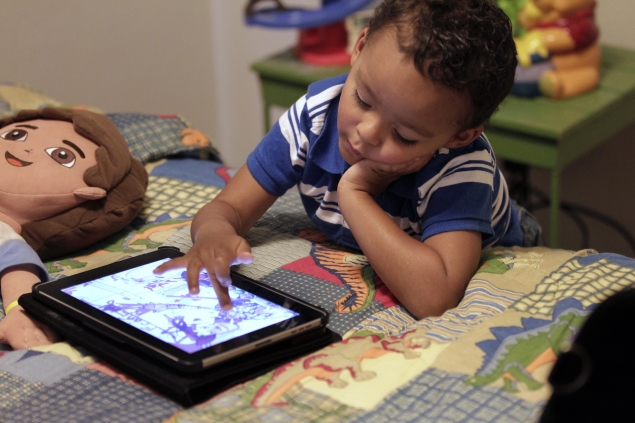- Home
- Science
- Science News
- Time Spent Gaming Linked to Poor Behaviour, Not Type of Games: Study
Time Spent Gaming Linked to Poor Behaviour, Not Type of Games: Study

The findings published in the journal Psychology of Popular Media Culture highlighted that the time spent playing games could be linked with problem behaviour and this was the significant factor rather than the types of games played.
The researchers found no link between playing violent games and real-life aggression or a child's academic performance. They also found that low levels of play - under an hour a day - might actually promote good behaviour and lower the levels of hyperactivity.
"This research suggests that playing electronic games may be a statistically significant but minor factor in how children progress academically or in their emotional well-being," said lead author Andy Przybylski from Oxford University's Oxford Internet Institute.
The researchers examined the effects of different types of games and time spent playing on children's social and academic behaviour.
They relied on teachers' assessments of behaviour of individual pupils at a school in the south-eastern region of England - instead of relying solely on data from the young people.
These assessments were matched with the responses to a questionnaire that asked each of the 200 pupils in the study, who were aged from 12 to 13 years, how long they played games each day and the type of games they preferred.
The choice given was to play solo, offline competitive team games, online cooperative and competitive games, combat and violence, puzzles and strategy and games to do with sport and racing.
The study suggests that parents should pay close attention to the amount of time their children spend on these games.
Although some parents might believe that by playing strategy and puzzle games their child might boost their school grades or increase their social skills, the bad news is that the sociability and the grades of the children who played such games were found to be no higher than their non-playing peers.
Catch the latest from the Consumer Electronics Show on Gadgets 360, at our CES 2026 hub.
Related Stories
- Samsung Galaxy Unpacked 2025
- ChatGPT
- Redmi Note 14 Pro+
- iPhone 16
- Apple Vision Pro
- Oneplus 12
- OnePlus Nord CE 3 Lite 5G
- iPhone 13
- Xiaomi 14 Pro
- Oppo Find N3
- Tecno Spark Go (2023)
- Realme V30
- Best Phones Under 25000
- Samsung Galaxy S24 Series
- Cryptocurrency
- iQoo 12
- Samsung Galaxy S24 Ultra
- Giottus
- Samsung Galaxy Z Flip 5
- Apple 'Scary Fast'
- Housefull 5
- GoPro Hero 12 Black Review
- Invincible Season 2
- JioGlass
- HD Ready TV
- Laptop Under 50000
- Smartwatch Under 10000
- Latest Mobile Phones
- Compare Phones
- OPPO Reno 15 Pro Max
- Honor Win RT
- Honor Win
- Xiaomi 17 Ultra Leica Edition
- Xiaomi 17 Ultra
- Huawei Nova 15
- Huawei Nova 15 Pro
- Huawei Nova 15 Ultra
- Asus ProArt P16
- MacBook Pro 14-inch (M5, 2025)
- OPPO Pad Air 5
- Huawei MatePad 11.5 (2026)
- Xiaomi Watch 5
- Huawei Watch 10th Anniversary Edition
- Acerpure Nitro Z Series 100-inch QLED TV
- Samsung 43 Inch LED Ultra HD (4K) Smart TV (UA43UE81AFULXL)
- Asus ROG Ally
- Nintendo Switch Lite
- Haier 1.6 Ton 5 Star Inverter Split AC (HSU19G-MZAID5BN-INV)
- Haier 1.6 Ton 5 Star Inverter Split AC (HSU19G-MZAIM5BN-INV)

















